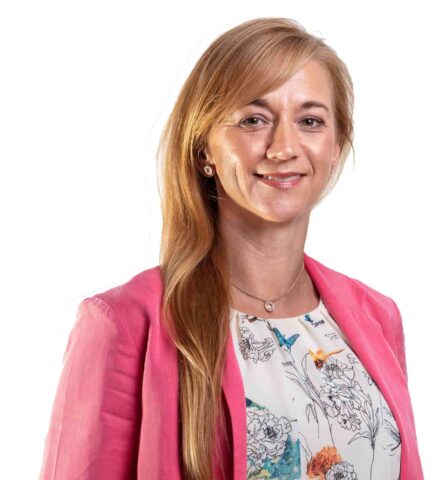GFSC raises awareness of scams in World Investor Week campaign
Sinead Ballester (right) with a team at the GFSC.
The Gibraltar Financial Services Commission is raising awareness of cyber frauds and scams this week as part of the International Organisation of Securities Commissions’ (IOSCO) World Investor Week 2021 campaign which starts today.
This year the IOSCO has chosen to focus its campaign on scams, in part due to the Covid-19 pandemic and the upsurge in technology use during this time.
Leading the campaign in Gibraltar is GFSC Director of Specialist Regulation, Heidi Bocarisa, who alongside Regulatory Relations and External Affairs Officer, Sinead Ballester, highlighted some of the precautions consumers need to be aware of.
As tech grows more prominent in daily life, the risk of falling foul to a scam grows.
Ms Bocarisa and Ms Ballester said phone scams via SMS are on the rise, particularly now that smart phones are so accessible even to youngsters, and also warned of email scams promising money.
"We have seen a higher incidence worldwide of one, people trying to perpetrate scams and fraud and two, people actually falling victim," Ms Bocarisa said.
"There has been an increase in frauds and scams, probably one of the reasons for it is that people have had more disposable income because they haven't been going on holidays and spending as much so their savings have grown and people think 'what should I do with those funds? Maybe I should be investing them'. They are starting to look around and scammers are starting to see an opportunity."
Ms Ballester added there has been an increase in phishing and smishing scams, with the first being a fraudulent message designed to dupe a person into revealing sensitive information such as bank details, and the latter uses mobile phones as the attack platform for the same purpose.
"We see [smishing] a lot with banks and companies and the first thing a consumer should do is contact that bank or company to ensure that isn't a message from them," Ms Ballester said.
"In terms of phishing which is email, there are very obvious things to look out for, check the sending address, check for spelling mistakes, if they are very pressing within their email to mark an urgent donation that's usually a red flag."
"Many people would get these types of messages within their junk mail, but there are people who will think it's an innocent email and will click on it."
Promises for easy money can be very attractive, but Ms Bocarisa said, people should always question the motives behind these types of emails.
“If it’s too good to be true it usually is,” Ms Ballester said.
Ms Bocarisa said the GFSC close communication with companies who are repeatedly targeted by scams to understand what practices are being implemented to mitigate the occurrence of scams.
"What's really important to understand your bank or your investment services provider is never ever going to ask you for account details in that way,” she said.
Another cause for concern for the GFSC has been the rise in investing generally, Ms Bocarisa said this increase has positive and negative consequences, depending on how much research a consumer does.

"As long as you understand you can lose all our money then it's a personal decision on whether you want to invest in crypto or not," she said.
"I think a lot of people don't really know enough and are doing it because their friends are doing it so there's that danger. But there's also crypto scams as well."
Investing in fraudulent cryptocurrency scams has been an issue, she said.
The GFSC has also attended local schools recently to give talks as part of their MoneyWise campaign.
For more advice on frauds and scams visit the GFSC website: www.fsc.gi









